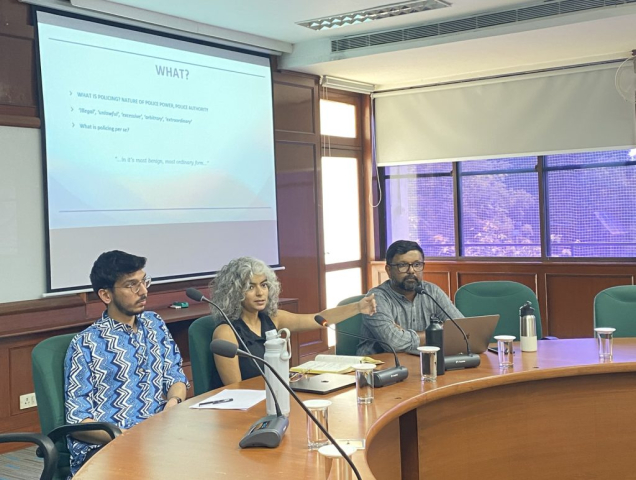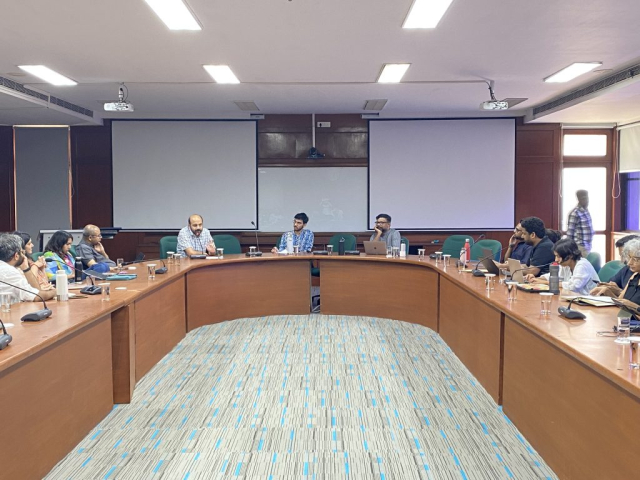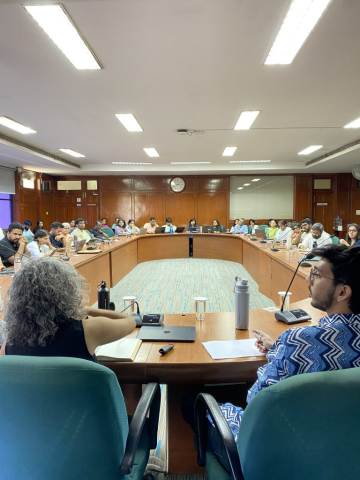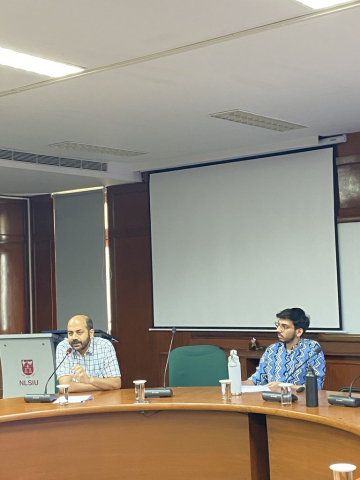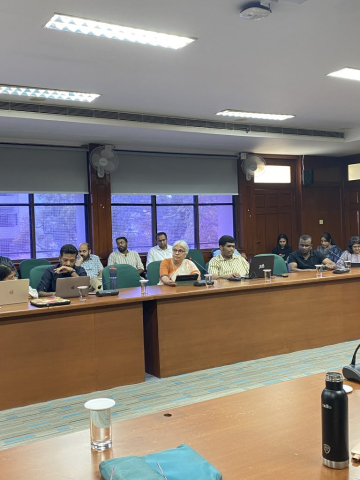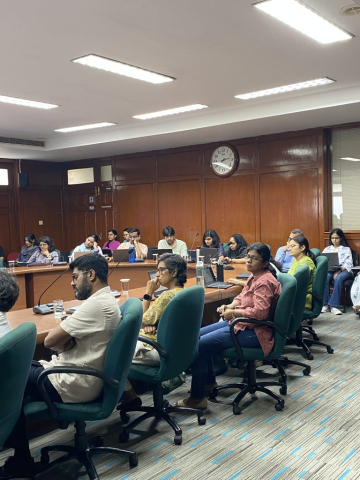NLS Faculty Seminar | Presentations by Siddharth Saxena and Radhika Chitkara
Conference Hall, Ground Floor, Training Centre
Wednesday, April 16, 2025, 2:30 pm
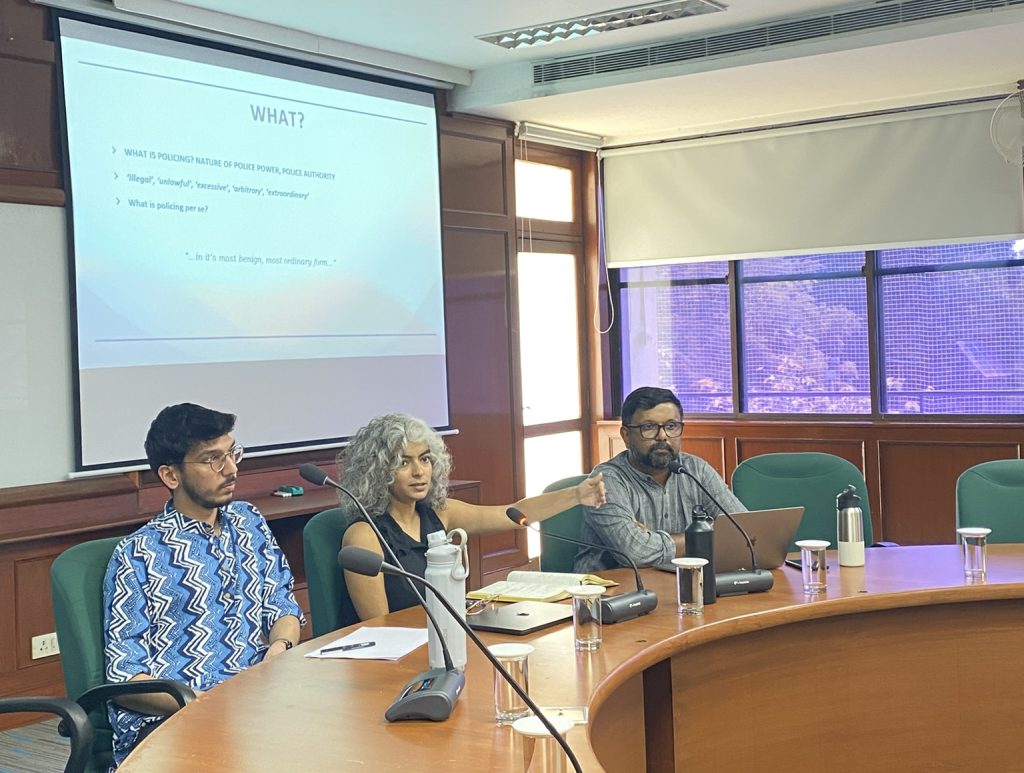 There will be two presentations by NLS Faculty at this week’s seminar by Siddharth Saxena and Radhika Chitkara.
There will be two presentations by NLS Faculty at this week’s seminar by Siddharth Saxena and Radhika Chitkara.
Presentation 1
Title: “Instrumentalising the University: The Principles underlying Higher Education Regulation at India’s Founding” by Siddharth Saxena.
Discussant: Sidharth Chauhan
Abstract
The contemporary literature on Indian universities is rife with discontent about academic freedom. Apart from attacks within and outside the university on the production and dissemination of knowledge, the state has systematically undermined institutional autonomy using the University Grants Commission (‘UGC’) regulatory powers. This literature has grounded the crisis in developments post the election of Narendra Modi’s Bharatiya Janata Party in 2014, particularly after their re-election in 2019. This article argues, instead, that it ought to be situated in a context predating the current regime. It can be traced to the instrumentalist idea of the university’s role in the postcolonial nation-state that was reified at its founding, and was expressed in the constitutional and statutory scheme created under Jawaharlal Nehru’s Indian National Congress. It explicates this through an analysis of the thought of political elites as revealed in the constitutional and legislative material associated with the creation of the UGC.
Presentation 2
Title: “Policing Per Se” by Radhika Chitkara.
Abstract
What is the character of police power? What is its relationship with law? And what makes it exceptional and extraordinary? A key intervention of this research is the attempt to study ‘police’- policing, police powers, police functions- on its own terms, or, ‘policing per se’. In this chapter, I do not attempt a common unifying theory of policing that both, captures its essence, and empirically addresses all that the police do in society. My approach accepts that different sites of police action reveal some facets of police power more than others. My attempt delineates coercion, discretion, knowledge-production and law as discrete facets of police authority that, in variable permutations, constitute police powers. These offer units of analysis through which I study norms and empirical data relating to counter-terror policing in this and subsequent chapters. I conclude the chapter by identifying a typology of three kinds of police powers based on the permutations generated by these discrete units in their interface with law, and read the UAPA within this typology: criminal police powers, administrative police powers, and inherent/ uncodified police powers.
This chapter proceeds in three parts. The first part cleaves apart policing from the law, through a careful excavation of discretion as a constitutive characteristic of police authority. It does so through a review of literature in anthropology, history and comparative law attempting to define the police. The second part studies police powers as epistemic authority creating knowledge about crime and society. The final part enlists the typology identified above as a menu of police powers through which to study UAPA. I do not study the capacity for coercion in meticulous detail since this paradigm already dominates studies of policing. I am sharing here only the first part of this chapter, on police discretion, which I identify at two registers: as gatekeepers and as sovereigns. The third part I have already presented at an earlier faculty seminar in 2023. This is the first draft, and is thus excessively lengthy and verbose. I will edit as I go along so that the first chapter, holistically, is of a manageable length.


